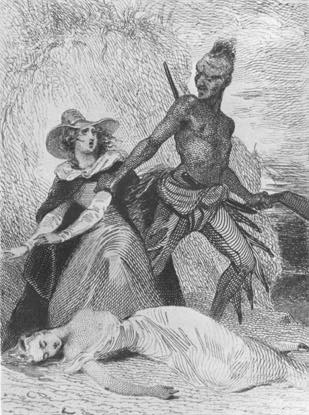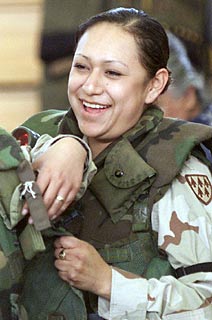‘Medicine Bags and Dog Tags,’ by Al Carroll
Carroll’s work does merit some praise in tackling a complex issue and often meeting-–if not raising--the bar.
The main problem seems to be that Carroll, an unenrolled member of the Mescalero Apache tribe, isn’t sure what he wants to do with this book. He decries how Natives are stereotyped in niche characters, like the helpful Tonto, the savage Magua or the in-tune-with-nature/spiritual Billy Jack.
But in later chapters, he relates how some Natives revealed visions--from deceased relatives to an eagle--that guided them through war.
He debunks the myth of scalping, only to later include comments from various Native vets about how they took scalps or celebrated with Scalp dances.
If it weren’t a stereotype, one might conclude that Carroll spoke with a forked tongue, spouting outrage at these base images while including soldiers’ statements that reinforce those very images.
Sounds like Al set himself a tough task: criticizing Native warrior stereotypes while acknowledging the Native warrior ethos. Fortunately, that's less of a problem for me.
For instance, when Indians honor Lori Piestewa (the Hopi soldier killed in Iraq) for her "warrior spirit," I bite my tongue. I'd be more impressed if she had protested the war and Indians had honored her "peacemaker spirit."
For more on the subject, see Indians in the Military.
Below: Bad warrior, good warrior.



No comments:
Post a Comment